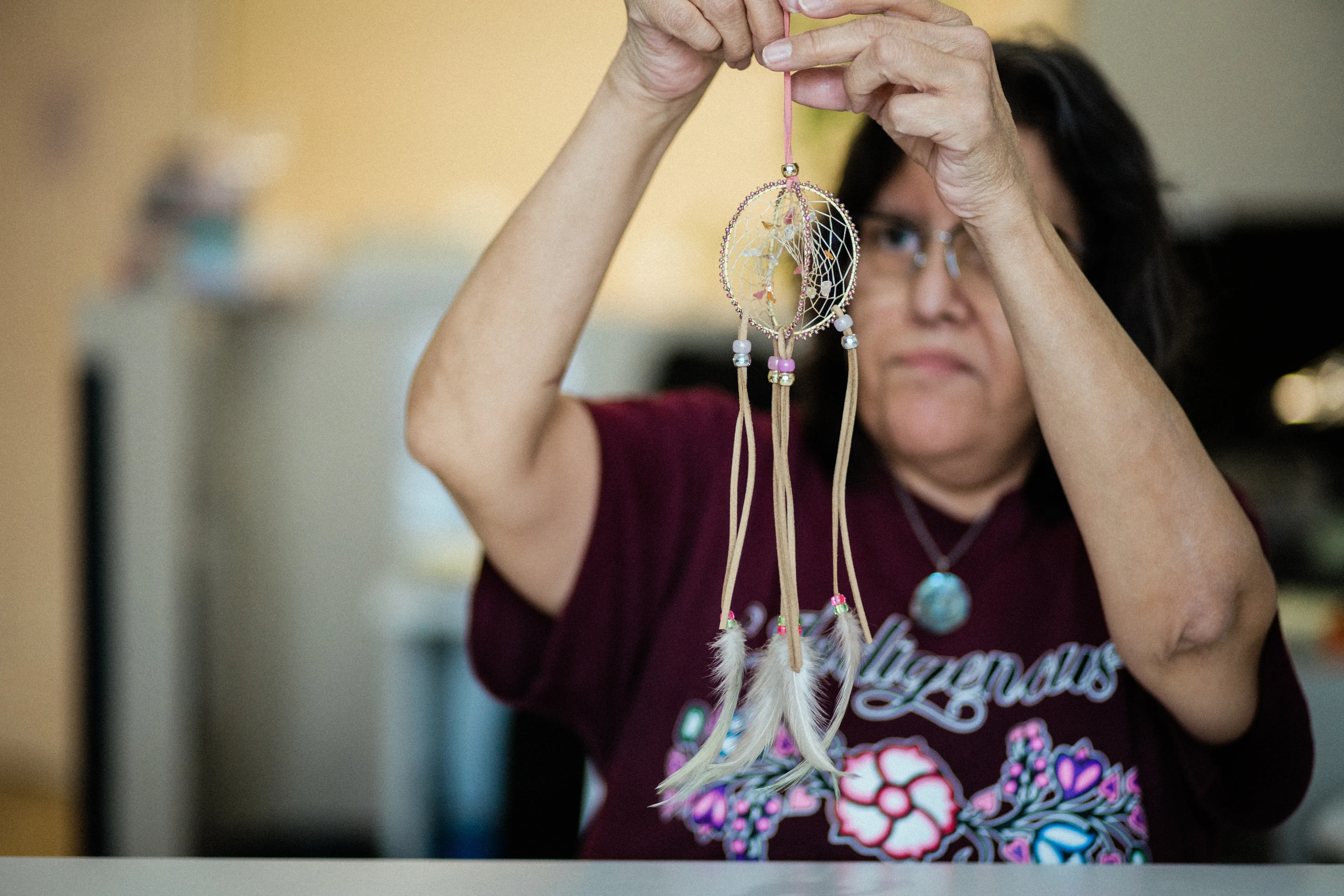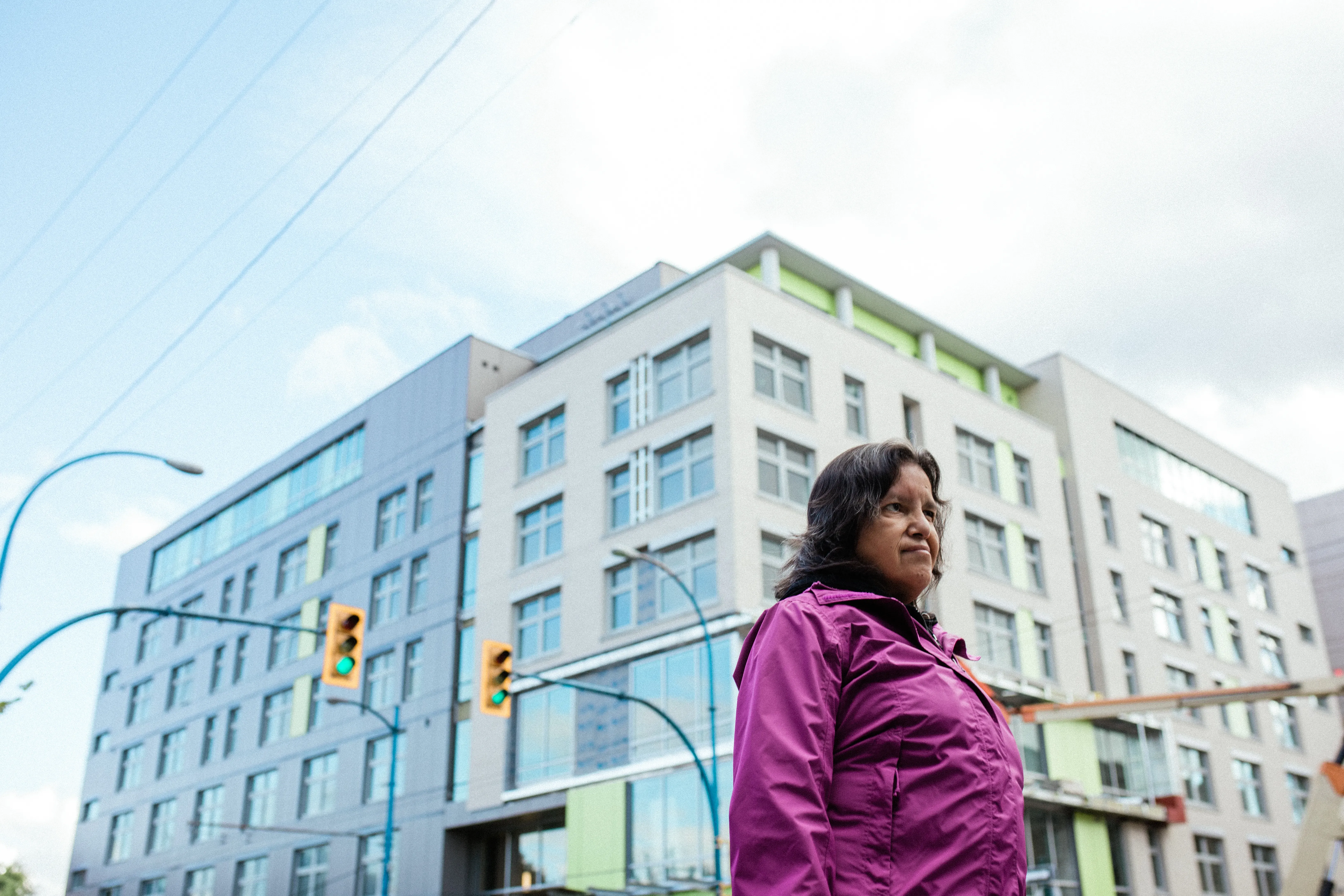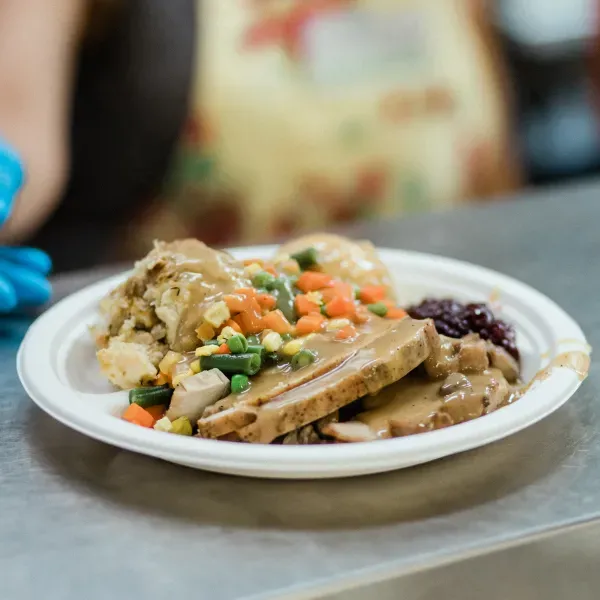Sandra comes from a resourceful Métis family of twelve siblings who lived off the land. When Sandra was born prematurely with congenital birth defect disorders, the doctors racially profiled her mother assuming the complications were due to alcohol abuse—which couldn’t have been further from the truth.
Health officials later discovered their land and water was contaminated with mercury, with its damage potentially limiting Sandra’s life. “They labeled me as never being able to walk, learn, look after myself, or have children,” she shares. “But luckily, I’m a walking miracle.”
It was impossible to access the specialized care Sandra needed in remote Manitoba. Her mother felt forced to put Sandra, her youngest child, into foster care—a heart-wrenching decision that she hoped would give her little girl proper healthcare. As Sandra cycled through white families, she couldn’t help but feel out of place and disconnected—a sentiment shared by many Sixties Scoop survivors. “In some ways, foster care did the same thing as residential schools; they tried their best to kill us, or assimilate us,” she says. “When you see people struggling today, you’re seeing the aftermath and atrocity of a genocide.”
In Sandra’s early teens, she lived with an Ojibwe family who tried introducing her to Indigenous culture. However, by then, she was experiencing internalized racism. “Even though they were a good family, I was ashamed and I didn’t want to be seen with them,” she explains. By now, Sandra was already struggling with alcohol and drug use. “I was really angry and rebellious, and I was trying to fit in with my peers at school—which all stems back to being in foster care.”
Regardless of the barriers and obstacles placed on her, Sandra graduated high school and eventually moved to Vancouver. In her early 20’s, Sandra discovered she was pregnant. Against all odds, Sandra’s incredible resilience gifted her with four beautiful children, and today, she also delights in being a kokum—a grandmother.

Sandra first got connected with UGM in the ‘90s. What started as a simple way to get her two oldest kids out of the house for a few hours every Sunday eventually led to hot meals for dinner, and Christmas Hampers during the holidays. “As a young mom, I was overwhelmed by the generosity. I’ve never felt so in awe; I was in tears,” she remembers. “I appreciated the support because Christmas was hard, and I wanted it to be special for my kids.”
That connection with UGM evolved to nourish Sandra in her deepest times of need. In 2001, Sandra was experiencing homelessness, survival sex work, and a relapse—and she started coming to UGM’s Women’s Drop-In Centre for meals and shelter. “The workers I connected with were so amazing. There was a core group of girls trying to find our way back, and we’d all lean on each other,” she shares. Since establishing a recovery-centered life, Sandra has attended Bible school, and been working at The Sanctuary for the last seven years. Here, she encourages women and mothers to keep fighting for their families.

Sandra is grateful for the Sanctuary’s expansion, knowing it will help lead even more women and families toward transformation.
“I wish they had The Sanctuary when I was a young mom,” she begins. “This new building has services Indigenous women need, and it’ll be a place they can call home. And it’s not just for moms—it’s for their children. The children now have a chance at life, to be with their mom, and to have outside support. It’s going to be a real rejuvenating experience for everyone, and being part of that history is something I’ll never forget.”
Sandra’s incredible tenacity and faith helps her cope with past, and ongoing, experiences of systemic racism and ableism—and today, she is passionate about bridging the gap between Indigenous people, culture, and Christianity. “We believe in the Creator, which in the eurocentric perspective, is God,” she explains. “I went through a time where I didn't value God because of my hardships—but what’s kept me strong is having both my Native and Christian sides. UGM services a lot of Indigenous folks, so at The Sanctuary, I see myself as a bridge and an ally.”
Ultimately, Sandra knows she bears incredible strength, and wants other Indigenous people to know they do too: “I’m a survivor. I overcame health issues, and I fought through all the systems of discrimination. I want to show determination in moving forward, no matter the hard times.”
Sign up to get inspiring stories of hope from UGM
Be the first to receive our Gratitude newsletter, new blog posts, updates on most critical needs and community news.


